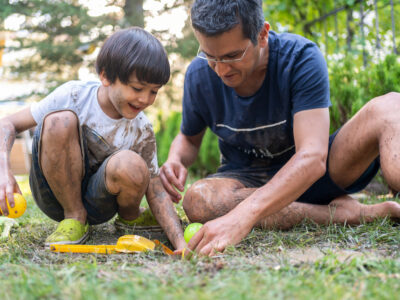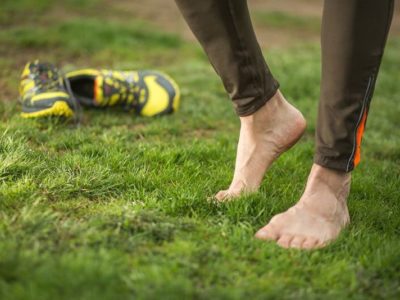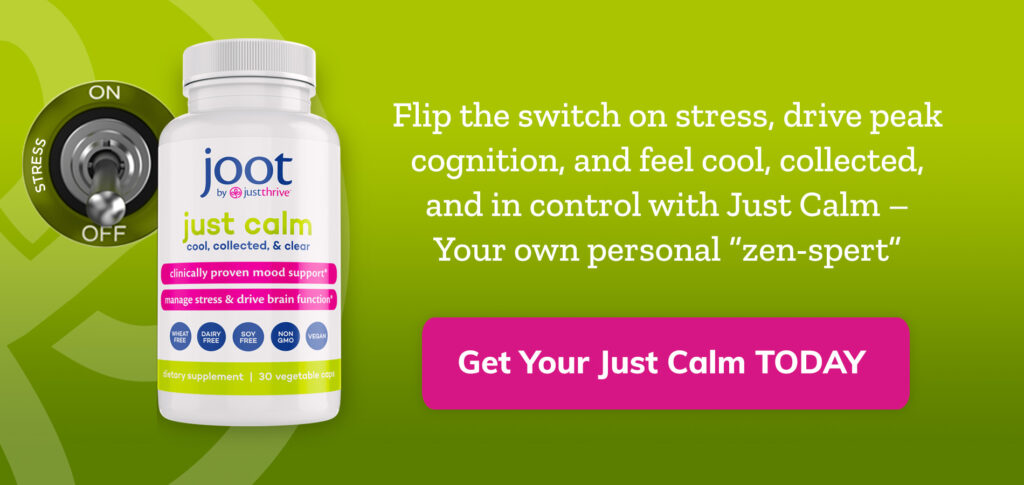Table of Contents[Hide][Show]
We, as humans, have never been so insulated and separated from the Earth.
From the amount of time spent indoors to wearing rubber-soled shoes and driving cars with rubber tires, our connection to the Earth has diminished to the point of being almost nonexistent.
Grounding is a simple yet powerful way to reconnect with the Earth, restore your inner balance, and enjoy the harmony of nature.
Beyond that, it offers proven benefits for your mind, body, and spirit.
But what is grounding, and how can you practice it?
Let’s dig deep into the Earth’s energy and explore the practice of grounding and the many ways this simple practice can improve your health.
What Is Grounding?
Grounding, also known as earthing, is a mind-body strategy that establishes a connection and energetic interchange between your body and the Earth’s electrical currents. You can achieve this by touching the Earth, either on the ground or in a body of natural water, with your bare skin.
Just as an object can pick up static electricity that needs to be discharged, your body builds up a positive electrical charge throughout the day.
The Earth, on the other hand, has a negative net charge. When you ground yourself, your physical contact with the Earth creates a flow of excess energy from your body into the Earth.
Releasing this excess energy can rebalance your body’s energetic state and positively impact your physical, emotional, and mental wellbeing.
How To Ground Yourself
Does all of that talk of electrons and energy sound overly complicated?
It doesn’t have to be!
Grounding yourself is incredibly simple and enjoyable.
Here are a few of the easiest ways to practice grounding.
Take a Walk
One of the easiest ways to ground yourself is by walking on grass, sand, dirt, or mud barefooted.
Stay mindful and deepen your connection to the Earth’s energy by focusing on the feel of the ground beneath your bare feet.
Of course, you should always be aware of your surroundings. Look out for sharp objects, rocks, or anything else that could hurt you while you’re walking barefoot.
Play In the Dirt or Sand
You can also use your hands to ground yourself.
- Work in your garden or yard, plunging your fingers into the soil.
- If you don’t have outdoor space, you can create a window box or container garden that serves the same purpose.
- If you’re near a shore or coastline, build sandcastles or sit by the water and let the sand flow between your fingers.
Related
12 Big Reasons Why Playing In the Dirt Is a Good Thing
Surprisingly, playing in the dirt is a great activity at any age, due to the physical, emotional, and mental benefits it imparts. Let’s get down and dirty with all the facts about why it’s good to play in the dirt!
Lie On the Ground
Your grounding time doesn’t have to be overly active. You can achieve skin-to-earth contact simply by lying on the grass or sand.
Read, draw, nap, or simply watch the clouds float by. Allow both your mind and your body to enjoy the stillness of the outdoors.
Immerse Yourself
Swim, float, or simply relax in a natural body of water, such as the ocean, a lake, or a natural pond.
If you don’t want to get all the way wet, you can walk along the shore with your feet in the sand, letting the water lap over you.
Use Grounding Technology
If weather, your surroundings, or other factors make it impossible to ground yourself outdoors, you can ground yourself indoors with specialty products.
These electrically charged items mimic the Earth’s energy and can have the same effect as walking outside in your bare feet.
Indoor options for grounding include:
- Mats
- Shoes or socks
- Blankets
- Mattress pads
- Adhesive patches
6 Benefits of Grounding
Now that you know how to ground yourself, you might be asking another question. What are the benefits of grounding?
Let’s look at some of the ways grounding can improve your health and wellbeing.
1. Lowers Stress
Picture yourself on a beach, wiggling your toes in the sand. Or sitting on the grass on a warm, sunny day.
That feeling of calm that washes over you isn’t your imagination. It’s one of the greatest benefits of grounding.
Research shows that grounding can reduce stress and regulate your stress response.
Grounding also lowers your cortisol level. This is the hormone that produces your body’s “fight-or-flight” response. A lower cortisol level can help you sleep better and feel less stressed.
And it’s not just mental. Stress can wreak havoc on your immune, digestive, and overall physical health, too—all of which benefit when you lower your stress by grounding yourself.
2. Eases Fatigue
Researchers conducted a 4-week study on the effects of grounding on fatigue.
Over the course of the trial, participants who used grounding mats reported significantly decreased fatigue and tiredness.
3. Relieves Anxiety and Depression
In the same study above, participants who used grounding mats also reported a decrease in symptoms of anxiety and depression.
These results continued even a month after the study had ended.
4. Reduces Chronic Pain
If you enjoy a good workout, you’ll be happy to know that grounding may help with DOMS (Delayed Onset Muscle Soreness).
Researchers studied both the duration of post-exercise pain as well as levels of creatine kinase (CK), an enzyme that indicates muscle damage. Both of these were reduced by grounding.
5. Supports Your Immune System
Advocates of grounding also make the link between the positive charge accumulated by your body and harmful free radicals, both of which can be caused by unpaired electrons.
Grounding can produce a positive impact similar to that of antioxidants, as both create stability and balance.
Research supports this, showing that grounding increases the number of white blood cells, cytokines, and other molecules that can improve your inflammatory response.
Those same studies show that grounding can:
- Promote faster wound healing
- Reduce inflammation
- Help prevent and treat chronic inflammatory and autoimmune conditions
Related
What Is Oxidative Stress and How Is It Affecting You?
What is oxidative stress? Learn its causes and signs, linked medical conditions, and how to reduce it with antioxidants and lifestyle choices.
6. Promotes Heart Health
Another study suggests that grounding can reduce blood viscosity and clumping.
This can lower your blood pressure and promote a healthy, well-functioning cardiovascular system, which also reduces your risk of suffering a cardiovascular event (such as a heart attack or stroke).
Tips For Grounding
Here are some things you can do to make your grounding practice even more effective.
Establish a Routine
Working out once a week won’t make you stronger. Eating one healthy meal a month won’t improve your health.
The same occurs with grounding.
If you want to see the physical and psychological effects of grounding, you need to practice it consistently. Set aside time several times each week to ground yourself.
To keep it interesting, you can mix things up. Work in your garden one day. Sit on the grass another day. Visit the beach and walk barefoot on the sand when it’s sunny.
Tune in to what your body wants to do, and strengthen your connection to the Earth regularly.
Add Meditation
You can enhance the benefits of grounding by adding in aspects of meditation and mindfulness.
- Go for a mindfulness walk in your bare feet.
- Practice yoga, tai chi, stretching, or other gentle exercises outside, barefooted.
- Sit on the grass or on a grounding mat while you meditate or practice mindfulness.
- Relax your mind and your body by meditating while floating in calm waters.
- Journal or listen to meditative music while you’re “touching grass.”
Most importantly, be present. Pay attention to how your mind and body feel while you’re grounding.
Improve Your Overall Health Habits
No amount of grounding will have a long-term effect if you disregard your overall health.
Here are some healthy habits that can support the positive impact of grounding.
- Stay hydrated.
- Reduce stress. If you can’t eliminate the source of your stress, practice stress reduction techniques such as meditation, yoga, or mindful breathing.
- Eat a healthy diet filled with fresh, organic, local foods. Eliminate or reduce overprocessed foods, sugary snacks and sodas, and alcohol.
- Get enough sleep. Grounding improves your sleep, but you still need to go to bed early to ensure that you get enough hours of sleep.
- Stay physically active throughout the week. Experts recommend 150 minutes of exercise per week, broken up into several sessions.
Focus On Safety
When you’re grounding outdoors, it’s especially important to be aware of your surroundings and emphasize safety.
Here are some things you can do to stay safe.
- If you’re walking barefooted, be aware of the ground you’re walking on to avoid injuring your feet.
- If you have balance issues, skip barefoot walks and try sitting in nature instead.
- Know where you’re walking. Choose well-lit, populated paths if you’re in a forest or park.
- Be prepared for emergencies with a first aid kit. Stock it with items such as bandages or bug bite relief.
- On especially hot days or if you’ll be outdoors for a long time, stay hydrated.
- Be cautious in the water. Swim around other people and check weather conditions—especially for tides and currents.
- Follow instructions for indoor grounding items carefully to avoid the risk of electrocution.
Take a Supplement
The right psychobiotic supplement lowers your stress level and supports the positive results you can achieve with grounding.
Psychobiotics are live bacteria strains that can help improve your mental and emotional health. They can balance your cortisol levels and help you manage everyday stress.
Our favorite psychobiotic supplement is Just Calm. It contains powerful bacterial strains that have been carefully researched and proven to support a balanced mood, cognition, concentration, and stress levels.
In just a few weeks, you’ll feel less frazzled and more centered and in control.
And as your overall wellbeing improves, you create more space to allow your mind and body to enjoy the benefits of grounding.
Final Thoughts
Are you ready to put your best (bare) foot forward?
Grounding offers a simple yet powerful way to restore balance and well-being in your life.
By taking the time to reconnect with the Earth’s energy, you can enjoy grounding benefits that improve and support your overall health.
Whether you choose to walk barefoot in the park, lie on the beach, or use indoor grounding products, the key is consistency and mindfulness.
Embrace this natural practice and let it become a regular part of your wellness routine, inviting harmony and tranquility into your everyday life.
You May Also Like…






